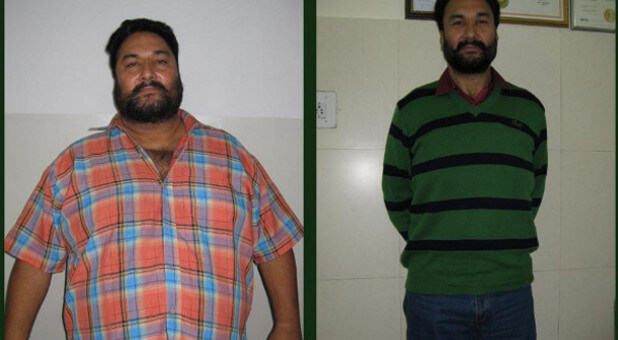Obesity is already linked to a higher risk of colon or rectal cancer, but a new study suggests this risk is even greater for obese people who have undergone weight-loss surgery.
Based on a study of more than 77,000 obese patients, Swedish and English researchers found the risk for colorectal cancer among those who have had obesity surgery is double that of the general population.
Though colorectal cancer risk among obese patients who didn’t have the surgery was just 26 percent higher than in the general population, researchers said the results should not discourage people from going under the knife.
“These findings should not be used to guide decisions made by patients or doctors at all until the results are confirmed by other studies,” said Dr. Jesper Lagergren, the new study’s senior author and a professor at both the Karolinska Institute in Stockholm and King’s College London.
Each year more than 100,000 people in the U.S. have surgery to treat obesity.
Lagergren and his colleagues point out in their report, published in the Annals of Surgery, that obesity is tied to elevated risks for a number of cancers, including colorectal, breast and prostate (see Reuters Health story of November 3, 2011 here: reut.rs/t9sYxO).
Whether surgery to lose weight can affect those risks is uncertain.
Two earlier studies, one from the U.S. and the other from Sweden, found that the chances of obesity-related cancers decline after women have weight-loss surgery.
But an earlier study from Lagergren’s group found the risks for breast and prostate cancers were unaffected by obesity surgery, and colorectal cancer risk increased.
To investigate that finding further, Lagergren’s team collected 29 years’ worth of medical records on more than 77,000 people in Sweden who were diagnosed as obese between 1980 and 2009. About 15,000 of them underwent weight loss surgery.
In the surgery group, 70 people developed colorectal cancer—a rate that was 60 percent greater than what would be expected for the larger Swedish population.
When the researchers looked only at people who had surgery more than 10 years before the end of the study period, the number of cancer cases was 200 percent greater than the expected risk for the general population.
In contrast, 373 people in the no-surgery group developed colorectal cancer, which was 26 percent more than would be expected in the population and that number remained stable over time.
A two-fold increased risk for colorectal cancer is not a “negligible risk increase, but it should not be of any major concern for the individual patient since the absolute risk is still low,” Lagergren told Reuters Health in an email.
In the U.S., for instance, 40 out of every 100,000 women and roughly 53 out of every 100,000 men develop colorectal cancer each year.
Doubling that risk would make the annual figures 80 out of every 100,000 women and 106 out of every 100,000 men.
Lagergren said that more studies are needed to confirm his results before they should be included in clinical decision-making about whether patients should undergo weight-loss surgery.
The study results cannot prove that the surgery is the cause of the elevated cancer risk.
And, Lagergren says it’s also not clear why the surgery might be tied to an elevated risk of colorectal cancer.
One possibility is that dietary changes after surgery, and increasing protein in particular, could raise cancer risk, he speculated.
Because the gut plays a significant role in the immune system, he added, “Another potential factor is that the bacteria that naturally reside in the intestines may change after surgery and alter future cancer risk.”
Lagergren noted that he also couldn’t rule out the possibility that residual excess weight and weight gain after surgery might be involved.
© 2013 Thomson Reuters. All rights reserved












